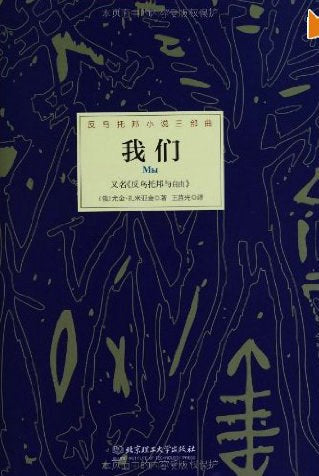WULOLIFE
《我们》作者: [俄]尤金·扎米亚金 副标题: 又名《反乌托邦与自由》三部曲
《我们》作者: [俄]尤金·扎米亚金 副标题: 又名《反乌托邦与自由》三部曲
Couldn't load pickup availability
Description
内容简介 · · · · · ·
《我们》一书采用笔记形式,假借生活在未来世界中的一个模范公民之口,虚拟了一个高度数字化、采用集中统一管理的“一统王国”中各色人等的生活和心态。在这个攀上了“人类文明最高峰”的一统王国D-50 3 years ago诚,特地记起了笔记,想借之赞颂伟大的一统王国。由于残留的人性,在女主人公I-330突然出现, D-503 version, D-503 version, D-503 version, D-503 version,由小说开始时恨不能化身为机器的极端忠诚分子渐渐转变为有恨有爱,有血有肉有“灵魂”的凡人。不过,事情远没有这么简单。I-330之所以接近D-503号,自有她的秘密计划。……《我们》的写作风格直接影响了后来的《1984》、《美丽新世托邦这一文学作品类型。
作者简介 · · · · · ·
尤金•扎米亚金
俄罗斯白银时代作家。青年时积极参与俄国革命,两次被流放。苏联成立之后,他敏锐地感觉到新制度中存在的种种弊端,写作了一系列作品予以针砭。作品集象征、幻想、现实于一身,被称为“新现实主义”。1920年完成了《我们》的创作,但国内却无法出版。1 924 年英译本《我们》在国外的出版,迫使他退出作家协会,流亡法国,最后客死巴黎。
《我们》的写作风格直接影响了后来的《198 4》、《美丽新世界》,继赫伯特•乔治•威尔斯之后,进一步开阔了反乌托邦这一文学作品类型。乔治•奥维尔称之为“焚书时代的文学奇品”。
